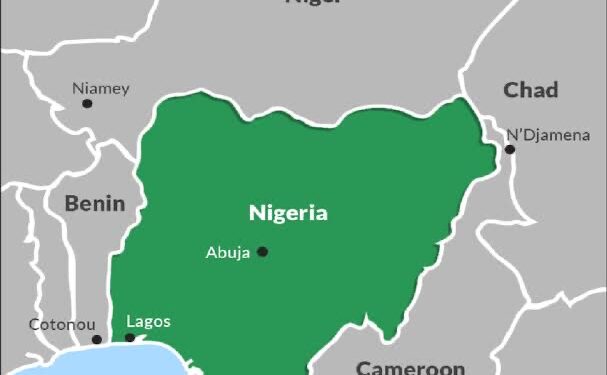In the second quarter of 2024, Nigeria witnessed a remarkable surge in its export volume to Niger Republic, a development that followed the reopening of borders by President Bola Tinubu in March. This decision was implemented amid ongoing political tensions sparked by a coup in Niger, which had previously led to partial closures of cross-border trade.
According to foreign trade data released by the National Bureau of Statistics (NBS), Nigeria’s exports to the Niger Republic skyrocketed by a significant 204%, rising from N6.72 billion in the first quarter of 2024 to an impressive N20.46 billion in the second quarter.
This sharp increase signals a significant economic shift, especially considering the earlier constraints placed on trade due to political instability in Niger. Prior to the reopening of the borders, legitimate trade between the two countries had been severely restricted in an effort to manage security concerns and prevent smuggling following the coup.

The ealier border closure had not only disrupted the free flow of goods but also strained Nigeria’s export activities in the region, leading to a marked decline in trade.
Niger Republic has now emerged as Nigeria’s 8th largest African trading partner. The NBS data reveals that the landlocked country accounted for 0.87% of Nigeria’s total export volume in the second quarter of 2024, a significant jump from the 0.30% recorded in the first quarter. This leap can be directly attributed to the border reopening, which allowed for a resurgence in trade activities that had been hampered by the political crisis.
While larger African economies such as South Africa and Ivory Coast depend heavily on Nigeria’s crude oil exports, Niger’s economic relationship with Nigeria is notably different.
The two countries primarily engage in the exchange of non-crude oil goods, including agricultural products and manufactured goods. These exports cater to Niger’s local demands, reflecting the diverse nature of their trade relationship.
The recent surge in trade reflects a broader recovery in Nigeria’s non-crude oil exports, which had suffered during the partial border closure. Now, with the reopening of trade routes, the exchange of goods between Nigeria and Niger has regained momentum, marking a return to normalcy and economic growth in the region.
In March, following the border reopening, President Bola Tinubu ordered the immediate re-opening of Nigeria’s land and air borders with Niger Republic. He also instructed the lifting of other sanctions that had been imposed on the neighboring country, a move aimed at restoring stability and strengthening economic ties.

The announcement of the border reopening was made in a statement issued by Ajuri Ngelale, the former Special Adviser to the President on Media and Publicity, on March 13, 2024.
This policy shift had immediate economic implications, particularly in infrastructure development. Following the reopening, Nigeria secured $1.3 billion in financing to complete the construction of a railway line linking Kano, the largest city in northern Nigeria, to Maradi in Niger.
This ambitious project, expected to enhance connectivity and trade between the two nations, is a crucial element of Nigeria’s broader strategy to deepen economic ties with Niger and other neighboring countries.
Senator Said Ahmed Alkali, Nigeria’s Minister of Transportation, disclosed the details of the railway project in Abuja, revealing that the China Civil Engineering Construction Company (CCECC) would finance 85% of the project, with the remaining 15% covered by the African Development Bank (AfDB). The completion of this railway line is expected to significantly boost cross-border trade, facilitating the movement of goods between the two countries.
However, the project is not without challenges. According to a report by Environmental Resources Management (ERM) and EnvAccord Limited, commissioned by the Africa Finance Corporation (AFC), the construction of the Kano-Niger rail project is expected to lead to substantial displacement in the northern region of Nigeria.
The report revealed that the project will result in the loss of 12,695 residential houses and 2,064 additional assets across multiple states, highlighting the significant socio-economic impact of the development.
Despite these challenges, the economic benefits of the rail project and the border reopening are expected to outweigh the costs in the long run.
As trade continues to flourish and infrastructure development progresses, Nigeria and Niger’s economic relationship is set to deepen, with both countries poised to reap the rewards of increased connectivity and cooperation.
This resurgence in trade and the ongoing development efforts reflect a renewed commitment to regional economic integration, positioning both Nigeria and Niger for sustained growth in the years to come.

































